Countries with no property taxes offer a rare financial advantage for homeowners looking to escape the burden of annual levies. Property taxes can add up quickly, alongside costs like HOA fees, insurance, and utilities, making homeownership more expensive over time. While property taxes are common in the U.S., some countries have chosen to eliminate property taxes entirely.
In this guide, we’ll list countries without property taxes and explain what property tax is and how much you can expect to pay in different countries.
History Of Property Taxes
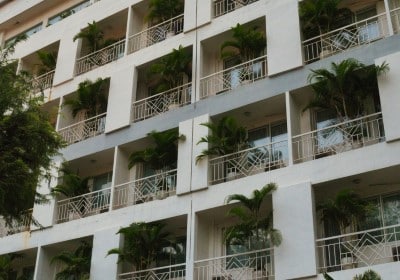
In Greece, property rights evolved, allowing individuals to own and transfer land, a concept foundational to modern property ownership. The Roman Empire further refined these ideas, introducing legal frameworks for property transactions.
During the Enlightenment, philosophers like John Locke advocated for property rights as a natural and inalienable human right, influencing the development of modern property law.
Today, property ownership is a cornerstone of economies worldwide, underpinned by legal frameworks that govern the acquisition, use, and transfer of real estate. However, variations in property rights, such as communal land ownership in some regions, continue to reflect the diverse cultural, historical, and legal contexts across the globe.
Property taxes have a deep history in the United States. They were among the earliest forms of taxation in the American colonies. After the American Revolution, property taxes were used by both state and local governments to fund public services and infrastructure.
Even in the UK, the practice of property tax goes back to 1601 when the English Parliament passed the Statute of 43 Elizabeth. This established a system of local taxation for the relief of the poor, known as the Poor Law, and laid the foundation for modern property taxation in England.
What is property tax?
Property tax is a tax that is assessed on real estate by a local government, usually a municipality or county. It is a primary source of revenue for local governments and is used to fund various public services and infrastructure, such as schools, police and fire departments, parks, roads, and other community facilities.
The amount of property tax an owner owes is based on the assessed value of the property and the local tax rate. The assessed value is an estimate of how much the property is worth in terms of market value. This value is determined by local government assessors based on factors like property size, location, condition, and comparable sales in the area.
The tax rate is usually expressed in terms of mills, where one mill is equivalent to one-tenth of a cent. For example, a tax rate of 50 mills means that for every $1,000 of assessed property value, the owner would owe $50 in property taxes.
It’s important to note that property tax laws and regulations vary significantly from one country to another, so the specifics can differ depending on where the property is located.
How property taxes work

One such example is the Cayman Islands, a Caribbean island nation known for its tax-friendly policies. In this tropical archipelago, property owners are not saddled with annual property taxes. Instead, revenue is primarily generated through other types of taxes, such as individual and corporate income taxes, as well as fees related to property transfer. This makes the Cayman Islands an attractive destination for high net worth individuals and real estate investors looking for tax-efficient opportunities.
Another notable country with a similar tax policy is the small European nation of Liechtenstein. Here, property owners are not subject to annual property taxes, allowing them to enjoy the benefits of home ownership without the financial burden of ongoing property tax payments. This policy aligns with Liechtenstein’s reputation as a business-friendly country, making it an appealing option for entrepreneurs and investors seeking favorable tax conditions.
Georgia, situated at the crossroads of Europe and Asia, is another jurisdiction that does not impose property taxes. This is a significant draw for property owners, particularly those with high-value residential or commercial properties. In Georgia, property transfer tax is the primary source of revenue related to real estate transactions. This absence of property taxes, combined with a low tax burden on individuals and legal entities, positions Georgia as an attractive destination for real estate investment, especially for those facing financial difficulties in other countries.
Malta, an island nation in the Mediterranean, also stands out as a tax-friendly option for property owners. While the country does have a property transfer tax, there is no annual property tax on residential apartments and other types of real property. This makes Malta an enticing choice for individuals and businesses seeking to invest in real estate without the ongoing expense of property taxes. Additionally, Malta offers a range of other benefits, including modern infrastructure, a welcoming expatriate community, and a high quality of life.
It’s worth noting that while these countries do not impose property taxes, they may have other forms of taxation in place, such as individual and corporate income taxes, as well as transaction-related taxes like property transfer fees. Therefore, individuals and businesses considering real estate investments in these tax-free countries should carefully evaluate the overall tax implications and consult with a tax advisor or lawyer to ensure compliance with local tax laws.
For property owners and real estate investors, choosing a location with no property taxes can have far-reaching financial consequences. Countries like the Cayman Islands, Liechtenstein, Georgia, and Malta offer an appealing alternative for those seeking to protect their gains and expand their real estate portfolios. However, it’s important to remember that tax policies and regulations can change, so it’s wise to remain informed and seek professional advice when engaging in real estate transactions in any jurisdiction.
What are property taxes used for?
Property taxes are typically used to fund local government services and infrastructure, but they can also be used for specific purposes like funding schools, libraries, or other community projects. They are typically collected annually, but the frequency can vary depending on local regulations.
Property owners are typically responsible for paying property taxes, and failure to do so can result in penalties, interest, and even the possibility of losing ownership of the property through a tax sale or foreclosure.
Overall, property taxes play a crucial role in funding essential public services and maintaining the overall functioning of a community.
Countries with No Property Tax
All the countries without property tax for residents and non-residents are Bahrain, Cambodia, the Cayman Islands, Cambodia, Croatia, the Cook Islands, Fiji, Georgia, Dominica, Israel, Kuwait, Liechtenstein, Malta, Monaco, Oman, Qatar, the Faroe Islands, Fiji, Oman, Qatar, Saudi Arabia, the Seychelles, and Sri Lanka.
Europe
Croatia
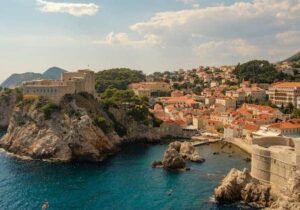
Property owners in Croatia don’t pay an annual property tax. However, there is an exception for owners of holiday homes, where the property tax is more ceremonial than anything meaningful.
Liechtenstein

One of the smallest countries in the world, Liechtenstein includes rental income in the income tax base, effectively eliminating real estate tax. However, the income tax bracket ranges from 3.2 percent to 17 percent.
Monaco

One of the main benefits of becoming a Monaco resident is to enjoy the country’s favorable tax system. Indeed, many foreigners acquire tax residency in Monaco due to its zero-income tax policy. Monaco residents (unless they are French citizens) are not subject to personal income tax, investment income, capital gains tax, dividends, or directors’ fees.
Moreover, Monaco is a European country with no wealth tax, no local tax, and no property tax. In addition, direct family members are not subject to gift, or inheritance tax.
Malta

Malta’s low tax rates make it an appealing destination for enterprises and people seeking a tax-friendly environment. Malta might be an attractive alternative for individuals wishing to create an offshore presence due to its expedited company registration procedure, access to the EU market, and English-speaking workforce. There is also no yearly property tax.
The Malta Permanent Residence Program (MPRP) is a residency by direct investment program that enables successful applicants to obtain a Certificate of Maltese Residence, entitling them to reside in Malta with their family members indefinitely. This investment route for residency is ideal for individuals with enough capital assets looking to enhance their mobility and quality of life.
Georgia

Georgia’s economy is driven by agriculture, tourism, and emerging industries like IT and renewable energy.
The country just south of Russia has no property tax, but you do have to pay a tax when the income generated from the property is more than $14,800. And even then, the tax is usually no more than one percent of the property value.
Oceania
Fiji

It comprises over 300 islands and is famed for its vibrant coral reefs.
Tourism and agriculture, particularly sugar and fisheries, are vital to Fiji’s economy. The country has a diverse cultural heritage and is known for its warm hospitality.
Cook Islands
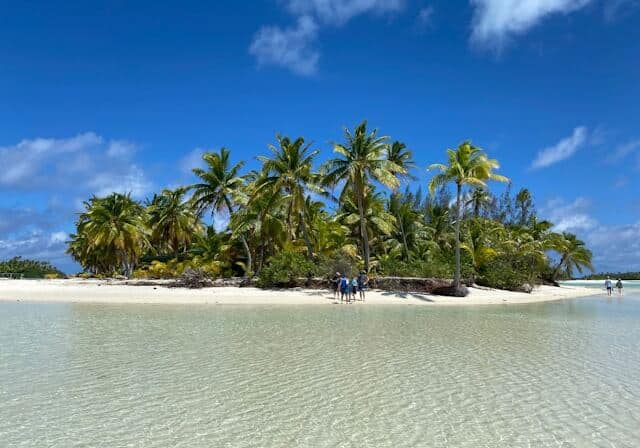
The Cook Islands, in the South Pacific Ocean, imposes no property taxes, and nonresidents are taxed only on their income from sources in the Cook Islands. However, there are taxes payable on other incomes, such as profits or gains derived from a business, salaries, rents, interests, dividends and annuities.
Vanuatu

Also referred to as the Vanuatu Citizenship Development Support Program (DSP), it’s one of the fastest and most straightforward ways to acquire a second passport. While Vanuatu’s citizenship program isn’t the cheapest option, it certainly is one of the easiest ways to get citizenship, with relatively few investor requirements. Owning a Vanuatu passport is particularly rewarding for private individuals looking for some peace and quiet.
A key benefit of the Vanuatu citizenship program is that if you decide to live there full-time, you don’t need to pay any Vanuatu tax on your worldwide income, plus no tax on personal income, inheritance, or gifts – and of course, no property tax.
Caribbean Region
Cayman Islands
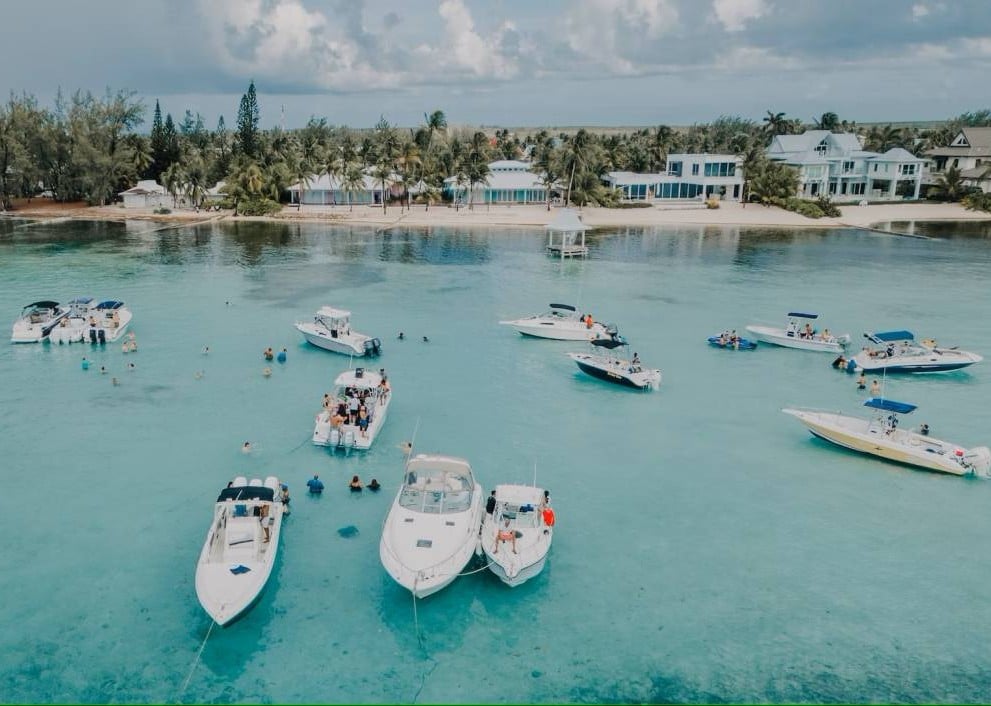
The Cayman Islands are regarded as a tax haven due to their absence of corporate tax, making them an attractive location for multinational corporations to establish subsidiary entities and potentially reduce their tax liabilities. Additionally, the Cayman Islands do not levy taxes on its residents, which means there are no income taxes, property taxes, capital gains taxes, payroll taxes, or withholding taxes.
Dominica
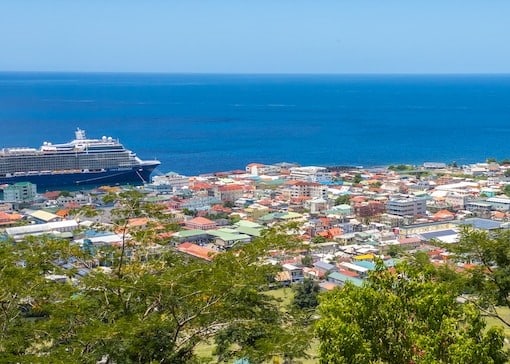
Dominica serves as a pristine tax haven with no imposed income, corporate, or capital gains taxes on earnings generated overseas. This extends to no withholding taxes, estate taxes (including inheritance and gift taxes), property taxes, and exemptions from stamp duty on asset transfers for offshore companies and trusts.
Regardless of nationality, individuals can establish offshore corporations in Dominica. The country enforces robust privacy laws safeguarding the identities of owners and directors of these companies incorporated in Dominica.
You can also obtain Dominican citizenship by purchasing real estate. This investment route demands that you invest at least $200,000 in government-approved real estate. Most of the options available are shares in high-end tourist accommodation.
The properties can be resold after three years, or five years if the buyer is also an applicant for the Dominica citizenship program. For this option, there are also Government Fees, which value depends on the number of family members included in the application.
Turks and Caicos

Tourism and offshore finance are key economic drivers.
The islands offer a blend of luxury resorts and natural beauty, making them a popular destination for travelers seeking both relaxation and adventure.
Grenada

However, if you own agricultural land as part of a working farm, there is no property tax on the land or any buildings on it.
In the event that the agricultural land is standing idle, there is no property tax on the value of any buildings but there is a 0.2 percent tax on the land.
Asia & The Middle East
United Arab Emirates

Foreign nationals who own real estate in the UAE may be granted a renewable residence visa valid for ten years. The requirement to obtain a UAE Golden Visa as a real estate investor is that the applicant can present the provision of a letter from the Department of Land and Property of the respective Emirate national stating that they own one or more properties in the UAE to the value of no less than two million UAE Dirhams (about $545,000).
The purchase of a property can be made with a loan of no more than 50 percent of the property’s value from specific local banks approved by the competent local entity. A Dubai Golden Visa for real estate investors provides a ten-year residency visa.
Bahrain

It is a financial and commercial hub in the Middle East. Bahrain’s economy is diversified, with sectors including finance, tourism, and oil refining.
The country offers a blend of cultural attractions, modern amenities, and a vibrant business environment. It is also among the several Middle Eastern countries with no property taxes.
Kuwait

It is known for its vast oil reserves and its significant contribution to global energy markets. Kuwait has a high standard of living and a well-developed infrastructure.
The economy is heavily reliant on oil exports, but there are efforts to diversify into other sectors like finance and real estate. For property owners in Kuwait, the annual property tax is zero.
Oman

Oman has a rich cultural heritage and a history of maritime trade.
The economy is driven by oil exports, but efforts to diversify into tourism, manufacturing, and logistics are underway. Oman is known for its warm hospitality and preserved natural beauty, and homeowners don’t pay any real estate taxes.
Saudi Arabia

The country is undergoing diversification efforts, aiming to reduce its dependence on oil and develop other sectors like tourism, entertainment, and technology. Saudi Arabia is known for its cultural significance and rich heritage. The wealthy Middle Eastern nation is also one of the Gulf countries where owning property will incur no property taxes.
Stamp Taxes

When a property changes hands from one owner to another, a legal document known as a deed is typically used to record and formalize the transfer. A stamp tax is a fee applied to this deed to make the transfer legally valid.
This tax is paid by the buyer, the seller, or sometimes both parties, depending on local regulations and agreements made during the negotiation of the property sale.
The specific rules regarding stamp taxes for property transfers can vary widely depending on the jurisdiction. Some areas may have fixed rates, while others may have a percentage-based tax calculated on the sale price of the property.
Additionally, some regions may have exemptions or reduced rates for certain types of transfers, such as transfers between family members or for certain types of affordable housing.
Stamp taxes serve as a source of revenue for local governments and are used to fund various public services and infrastructure projects.
It’s important to note that the terminology and specifics of property-related taxes can vary from one country to another, so it’s crucial to consult local tax authorities or seek legal advice when dealing with property transactions to ensure compliance with all applicable laws and regulations.
Frequently Asked Questions
Are there countries with no property taxes?
The most well-known countries that don’t have property taxes are also the ones considered tax havens. There are about a dozen countries in the world that don’t impose taxes on property, with the most popular being Malta, Monaco, and the Cayman Islands.
Which countries can you own land outright?
You can typically own land outright in most countries. However, the specific laws and regulations governing land ownership, as well as any restrictions or conditions that may apply, can vary from country to country.
For example, in Australia, non-residents can generally buy new dwellings, but they are not allowed to buy existing dwellings for investment purposes.
In Mexico, anybody can own land, but there are some restrictions on foreign ownership of land near coastlines and borders. On the contrary, in Thailand and the Philippines, foreigners can’t own land outright, but they can own buildings and structures on the land – as long as they aren’t the majority owners of multi-unit properties.
Which country is most tax-free?
The term “tax-free” can be interpreted in different ways, and the level of taxation can vary based on the specific types of taxes (e.g., income tax, property tax, sales tax, etc.) and the individual’s or entity’s circumstances (e.g., residency, citizenship, business structure, etc.).
So it only depends on what type of “tax-free” you are looking for. For example, the United Arab Emirates is known for its low tax environment with no federal income tax, while other Gulf states such as Bahrain and Qatar also have no personal income tax.
What Caribbean islands have no property taxes?
There are a few islands in the Caribbean that have no property tax, with notable examples being the Cayman Islands, Dominica, and the Turks and Caicos. And while Grenada has a 0.2 percent property tax for residential land, there is no tax on agricultural land. Check out our article on Caribbean Taxes for more information.
Does the Bahamas have no property tax?
No, you still have to pay property tax in The Bahamas. According to the government’s information, property tax is mandatory in The Bahamas. The payment is expected upon issuance and must be settled by December 31 to prevent incurring an extra 5% interest charge. If a property owner is behind on payments, the property may be sold to cover the outstanding tax amount.


